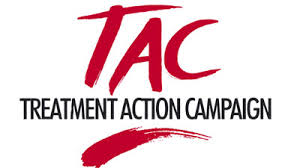South Africa’s public healthcare system continues to be in crisis and political leaders will be held accountable, the Treatment Action Campaign (TAC) says.
The TAC national leadership held its first meeting of 2018 this week to plan for the year ahead and take stock of political developments over the holiday period, the TAC said in a statement following the meeting.
“The reality is that in 2018, the South African public healthcare system continues to be in crisis. It is poor people who bear the brunt of this dysfunction. We continue to face major HIV and TB epidemics – 7.1 million people have HIV and TB remains our leading cause of death in the country.”
There were rising rates of drug resistant tuberculosis (TB) – the World Health Organisation (WHO) estimated 19,000 cases in 2016, up from 7350 in 2007 – and there were high burdens of other sexually transmitted infections (STIs). This was in conjunction with an epidemic of sexual violence across the country, the TAC said.
“It is within this context that TAC turns 20. We will mark our 20th anniversary of saving lives with a year of intensified action around HIV, TB, and the broken public health system. We will expose the current atrocities in the health system and ensure that those in positions of political power are held accountable and ensure they fix the health system.”
In February, the TAC would launch the “People’s National Strategic Plan (NSP) on HIV, TB, and STIs”. Last year, the TAC refused to endorse government and the SA National Aids Council’s (SANAC) own NSP, a plan that failed to reflect the realities in the healthcare system and the political realities in which this healthcare system exists.
“There exists a good understanding of what needs to be done to turn the tide against TB, HIV, and other STIs, but currently the finances, the human resources, and the management capacity to make it a reality are missing. Our own NSP will outline the people’s plan for the next five years,” the TAC said.
While the country’s health system continued to implode, the governing African National Congress (ANC) grappled with its internal politics. December 2017 was a significant political milestone for the ANC, and many pundits viewed it as a moment heralding the renewal of the party.
“We welcome the appointment of Cyril Ramaphosa as ANC president and note our good working relationship with him as the chairperson of the South African National AIDS Council (SANAC). While we respect the independence of the ANC election process, we note with concern the appointment of Free State premier Ace Magashule and Mpumalanga premier David Mabuza into the ANC’s top six leadership. Both men have presided over provinces with broken healthcare systems and are implicated in corruption. As TAC, we can never have faith in these individuals.
“We urge all politicians to focus on the real work of delivering services to our people. The 2019 election is predicted to be a watershed moment in our country’s history and we, as TAC, are ready to hold our political leaders accountable. We will engage the new leadership of the ANC through Ramaphosa. We will engage all other opposition parties sitting in parliament as well as premiers, MECs of health, and portfolio committees.
“While we commit to increased engagement between TAC and political parties this year, we stress that TAC remains independent from any political parties and our primary responsibility remains to serve the interests of our members and other users of the public healthcare system.
“That said, direct engagement with political parties in all provinces and at the national parliament appears a promising avenue through which to increase political accountability and to force a more proactive and committed response to the collapse of our healthcare systems.
“In the coming weeks we will release TAC reports on the state of the provincial health systems where we work. The evidence is damning. We will urge political parties to thoroughly review the challenges and to ensure solutions are evident i






